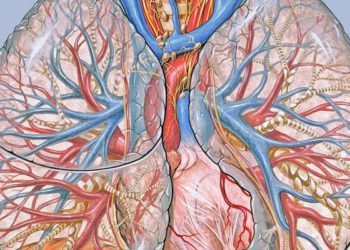Elevated troponin T levels associated with increased mortality in patients presenting with dyspnea
1. This retrospective study found that in patients presenting to the emergency department with acute dyspnea, elevated high-sensitivity cardiac troponin T (hs-cTnT) was associated with a higher 3-month all-cause mortality than those without an elevated hs-cTnT level.
2. Patients presenting with acute dyspnea along with an elevated hs-cTnT were older, more frequently male, more often hospitalized, had more deranged vital signs at admittance, were admitted with more severe symptoms, had fewer normal ECGs, and had a higher proportion of ECGs with ST-depression than patients without an elevated hs-cTnT.
Evidence Rating Level: 2 (Good)
Acute dyspnea is a common and challenging presentation in the emergency department, and a quick and safe identification of patients at risk for worse prognosis is important. High-sensitivity cardiac troponin T (hs-cTnT) has been found to safely rule out myocardial infarction (MI), though elevated levels can also mirror myocardial injury in other types of diseases other than MI. This retrospective study aimed to examine the association between myocardial injury and mortality in the absence of acute myocardial infarction, specifically noting the association between myocardial injury and patient characteristics. Data were obtained from the Acute Dyspnea Study (ADYS) cohort which was collected from December 2013 to January 2019. In total, 1001 adult patients presenting with acute dyspnea were included in the final analysis and these patients were interviewed by a research nurse using a standard questionnaire. Patients were also subdivided by levels of hs-cTnT and categorized into three groups based on their hs-cTnT level, no elevation (hs-cTnT < 15 ng/L), mild elevation (hs-cTnT 15 – 100 ng/L), and moderate elevation (hs-cTnT >100 ng/L). Compared to patients with normal hs-cTnT, patients with an elevated hs-cTnT were older, more frequently male, more often hospitalized, had more deranged vital signs at admittance, were admitted with more severe symptoms, had fewer normal ECGs, and had a higher proportion of ECGs with ST-depression. In addition, patients with increased hs-cTnT levels had a significantly higher proportion of comorbidities and higher mortality after 3-month follow-up. Regarding sex, men were found to have higher hs-cTnT levels than women (p<.003). When comparing the two groups with an increase in hs-cTnT above the clinical cut-off, the moderate increase group had a significantly higher hospitalization rate, a higher proportion of ‘high medical urgency cases’, a higher proportion of patients with renal disease, and higher 3 months mortality compared with the mild increase group. Furthermore, cox regression analysis for 3-month mortality in the three groups revealed five that were found to be significantly associated with mortality: respiratory frequency, saturation, CHF, renal disease, and BMI. Overall, a higher hs-cTnT level was associated with significantly higher 3-month mortality, and those with higher hs-cTnT levels tended to have more comorbidities and presented with more severe characteristics. A limitation of this study is the lack of previous interventions for cardiac disease, including medication, that could affect the results of this study. This study is important to further explore strategies and risk factors for negative outcomes in patients who present with acute dyspnea in the emergency department.
Click to read the study in BMC Emergency Medicine
Image: PD
©2023 2 Minute Medicine, Inc. All rights reserved. No works may be reproduced without expressed written consent from 2 Minute Medicine, Inc. Inquire about licensing here. No article should be construed as medical advice and is not intended as such by the authors or by 2 Minute Medicine, Inc.









